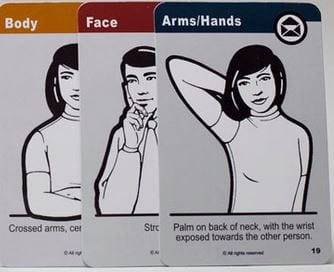by Briggs Webster – March 2015
NRG, the parent company of Reliant Energy, based in Houston sponsors eight NFL teams, as well as the Texas Rangers, Houston Rockets, and the Houston Livestock Show & Rodeo. As a part of sponsoring 8 of the 9 most valuable NFL franchises, we vie to be a relevant part of the football experience while leveraging assets to create an authentic connection for fans.
An ongoing task for brands with such corporate partnerships is to leverage hospitality assets. With NFL teams stretching from San Francisco to New York, our 8-person Houston-based team must balance the hospitality (aka ticket request) needs of executives and upper management. With over 10,000 tickets to distribute and allocate over the course of a year, you might think it’s an easy job that makes plenty of friends.
But, please don’t call me. Because, frankly, it is tough to keep everyone happy. In fact, we keep a motto front of mind to help keep everyone happy, from the highest executives, to the smallest entry level associates. The easy 1-step process to keeping everyone happy:
- Understand that you cannot and will not keep everyone happy.
If you are in this role, it is your job to try to keep folks happy. But, when you can’t meet everyone’s request, what should you do?
Taking an active role in communication
Instead of passively reacting to requests, take an active role in communicating. Explain what assets you do have available and what you can do with what you have. How can you improve the way you communicate? Through my experiences with NRG, I have learned four techniques to effectively communicate with colleagues, bosses, clients, or executives.
#1. Listen.
It’s that simple. Focus fully on whoever is talking and simply show interest. If you are attentive, it’s going to be a lot easier to clarify information and avoid conflicts. Since so much communication is done via e-mail, you may need to make a call so listen. But, first, read carefully so that you have all of the details.
#2. Be aware of nonverbal communication.

The way you look, listen, and react to another person through your body language tells others more about how you feel and what you think than words ever can. You can improve effective communication by using open body language—arms not crossed, sitting on the edge of your seat, and maintaining eye contact.
#3. Manage stress.
It’s easier to communicate, respond to email, or pick up the phone to call someone when you have nothing on your plate on a slow workday. But, for most of us, those days are few and far between. So how can you manage stress? First, recognize it. When you’re becoming stressed, immediately capture that moment by taking a deep breath to calm down. You may not be able to go on a midday run to de-stress, but you can take deep breaths and re-evaluate. Before reacting in a stressful situation, take a deep breath and a few seconds to imagine the issue from the other person’s perspective.
#4. Follow up.
 One of the best pieces of advice I have received at NRG was from our Director of Sponsorships, Christine Brown. She said that “Radio silence is your enemy.”
One of the best pieces of advice I have received at NRG was from our Director of Sponsorships, Christine Brown. She said that “Radio silence is your enemy.”
Even if you don’t have an answer to a question, inquiry, or problem, you should proactively update people on progress and steps you are taking. Christine used an analogy that stuck with me. Avoiding radio silence is, “kind of like a waitress coming by your table to say that the food is coming and the kitchen is a little backed up. You might still be hungry, but you aren’t annoyed and you aren’t wondering if the waitress forgot about you.” Following up, even if there is really nothing to be updated, is better than “radio silence.”
Conclusion
Effective communication enables you to communicate even negative or difficult messages without creating conflict or destroying trust.
Effective communication combines a set of skills including attentive listening, nonverbal communication, the ability to manage stress in the moment, and the simple recognition of following up. While effective communication is a learned skill set, it is more effective when spontaneous rather than robotic. The goal is to incorporate these skills into habit, so that is a part of who you are. Just like a speech read from notes has less of an impact than speech delivered from the heart, spontaneous communication is the same way. You can start by writing these four tips on a card by your phone or PC. Eventually, you’ll lose the card, but keep the practice and instinctively and spontaneously communicate with others.

